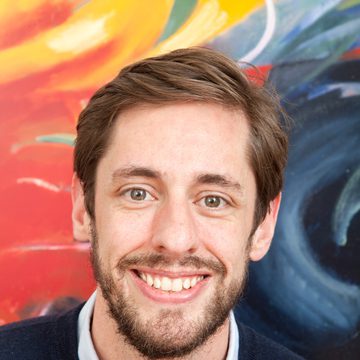Recent Research
Pelowski, M (2023)
Can art have a positive impact on society?
Spee, B. T. M., Crone, J.S., Darweesh, S. K. L., Meinders, M. J., Arato, J., Kim, Y. A., Bloem, B. R. & Pelowski, M. (2025)
Prevalence of experienced changes in artistic and everyday creativity in people with Parkinson’s disease
Trupp, M. D., Howlin, C., Fekete, A., Kutsche, J., Fingerhut, J. & Pelowski, M. (2025)
Who benefits from online art viewing, and how: The role of pleasure, meaningfulness, and trait aesthetic responsiveness in computer-based art interventions for well-being.
Pelowski, M., Cotter, K. N., Specker, E., Fingerhut, J., Trupp, M. D., & Speidel, K. (2024)
How lasting is the impact of art?: An exploratory study of the incidence and duration of art exhibition-induced prosocial attitude change using a 2-week daily diary method
Matthew Pelowski is Assistant Professor of Cognitive and Neuroaesthetics in the Faculty of Psychology, University of Vienna, with a dual affiliation in the Vienna Cognitive Science Hub.
He is the head of the ARTIS Lab (Art Research on Transformation of Individuals and Society). Matthew focuses primarily on the theoretical and empirical investigation of interactions and implications with the visual arts (i.e. Art in the city, the museum, in our everyday lives) with a particular emphasis on ecologically valid, on site, evidence based methods. He has developed a number of interdisciplinary research programs focused specifically on the empirical study of art engagements as these impact emotions, perceptions, cognitions, the brain, and the body.
Matthew is currently the Coordinator for an EU-Horizon 2020 Consortium project TRANSFORMATIONS: Societal challenges and the arts, combining
nine research institutions and societal partners in psychology/neuroscience, art education, and arts policy with a specific focus on the efficacy of arts-based initiatives for changing attitudes, behaviors, and health.
He also recently started another transdisciplinary initiative, funded by the Austrian Science Fund (FWF), and for which he is the Coordinator, “Unlocking the Muse: Transdisciplinary Approaches to Understanding and Applying the Intersection of Artistic Creativity and Parkinson’s Disease."






